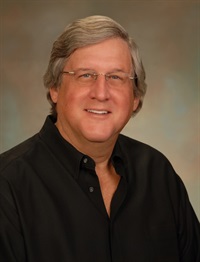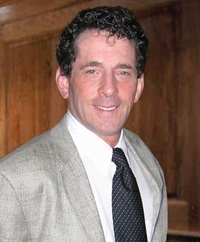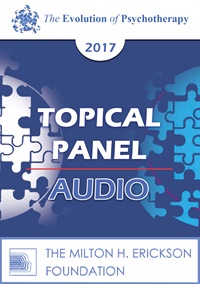EP17 Topical Panel 11 - Depression - Jeffrey Zeig, PhD; Michele Weiner-Davis, LCSW; Michael Yapko, PhD
- Average Rating:
- Not yet rated
- Topic Areas:
- Topical Panels | Depression
- Categories:
- Evolution of Psychotherapy | Evolution of Psychotherapy 2017 | Pioneers in Couples and Family Therapy
- Faculty:
- Michele Weiner-Davis, LCSW | Michael Yapko, PhD | Jeffrey Zeig, PhD
- Duration:
- 1:04:08
- Format:
- Audio Only
- Original Program Date:
- Dec 15, 2017
- License:
- Never Expires.
Description
Description: This panel explores fresh ways of understanding and treating depression, moving beyond rigid diagnoses toward a more experiential, state-based approach. The conversation blends clinical strategy with personal story, underscoring the power of connection, early intervention, and skill-building. Biological treatments are considered, but the heart of the work lies in thoughtful, attuned therapeutic relationships.
Syllabus Description: Depression is one of the most common problems brought to psychotherapists. Treatment options and biological substrates will be discussed.
Educational Objectives:
- Describe three techniques for working with depression.
- Describe modern neurobiological perspectives on depression.
*Sessions may be edited for content and to preserve confidentiality*
Credits
Handouts
| Timestamped Transcript (941.8 KB) | 22 Pages | Available after Purchase |
| Ericksonian Learning Snapshot (247.9 KB) | 2 Pages | Available after Purchase |
Faculty

Michele Weiner-Davis, LCSW Related Seminars and Products
Michele Weiner-Davis, LCSW is the Founder of The Divorce Busting Center in Boulder, Colorado. She is a popular TEDx speaker and the author of eight books including, Healing From Infidelity, and the bestselling Divorce Busting and The Sex-Starved Marriage. She is the recipient of several prestigious awards including the Outstanding Contribution to Marriage and Family Therapy Award from AAMFT.

Michael Yapko, PhD Related Seminars and Products
Michael D. Yapko, Ph.D. (professional psychology, clinical specialization), is internationally recognized for his innovative work in applied clinical hypnosis, developing brief psychotherapies, and the strategic treatment of depression. He has been invited to present his work in more than 30 countries across six continents. He is the author of 15 books, including his most recent, The Discriminating Therapist. He is a recipient of numerous awards for his many contributions to the field, including the Milton H. Erickson Foundation Lifetime Achievement Award.

Jeffrey Zeig, PhD Related Seminars and Products
Jeffrey K. Zeig, PhD, is the Founder and Director of the Milton H. Erickson Foundation and is president of Zeig, Tucker & Theisen, Inc., publishers in the behavioral sciences. He has edited, co-edited, authored or coauthored more than 20 books on psychotherapy that appear in twelve foreign languages. Dr. Zeig is a psychologist and marriage and family therapist in private practice in Phoenix, Arizona.


